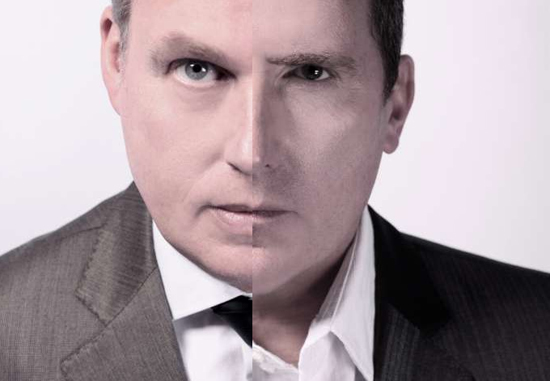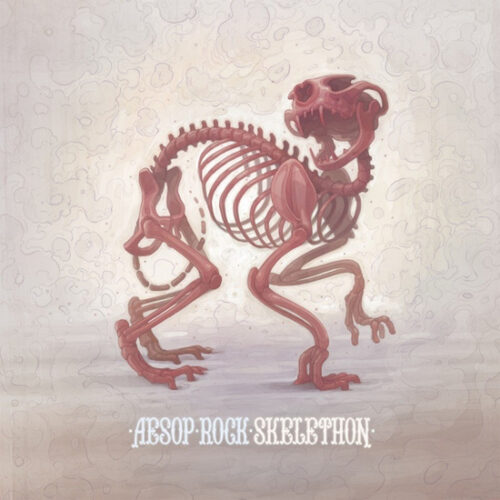It’s difficult to shake the feeling that if Orchestral Manoeuvres in the Dark had split up after the release of their fourth album, 1983’s Dazzle Ships, then they’d be a far more fondly remembered and respected proposition than they are now. Channelling inspiration from Kraftwerk and the possibilities that the new electronic technology could offer them, Orchestral Manoeuvres in the Dark were the sound of a future yet to be written while remaining rooted in the then present environments of industrial decline, the Cold War and the ever growing threat of nuclear war.
The critical and commercial failure of the boldly experimental Dazzle Ships brought about a crisis of confidence that saw the band lurch away from their futuristic ideals to writing to order with one eye on the balance sheet and a misplaced desire to second-guess what their audience might expect of them.
The core partnership at the heart of Orchestral Manoeuvres in the Dark – singer/bassist Andy McCluskey and singer/keyboardist Paul Humphries – split at the end of the 80s as the age-old reason of ‘musical differences’ reared its ugly and predictable head. McCluskey took ownership of the band’s name to set sail into an ocean of largely forgettable fluff that did much sully the work that forged their reputation in the first place.
Meeting the reunited core team of Andy McCluskey and Paul Humphries in the environs of London’s Soho House members club as they prepare to launch their new album, History Of Modern, proves to be a highly enjoyable experience. McCluskey is the more dominant of the pair. Chatty, outspoken and given to a strange laugh that sees him resembling a chipmunk, the curly-haired singer isn’t afraid to voice his opinion. On the other hand, Humphries is more considered and provides a counterbalance to his partner’s verbose points of view and together they tell The Quietus of their legacy, the death of creativity and why they just might push the envelope out once more…
How aware are you of your legacy and how does that affect what you do now?
Andy McCluskey: The simple answer is, we are very aware. We are completely and overwhelmingly aware of the whole question of whether we should be doing this; why we are doing this thirty years on after we started. The music industry is finished. However, people are still interested in music but because there’s no ‘What’s in fashion’, there’s no ‘Out of fashion’. People just look at things and say, ‘Oh, it’s this style and they’re good at it’ or ‘Oh, it’s that style and they’re good at it’ because we’re now just seen as this iconographic sample of a genre. And so we decided we wanted to say things and it’s cool to say them in the style of Orchestral Manoeuvres in the Dark and that’s what we’ve done. We’re fully aware of why we’re doing this.
To what degree then, do you think that pop music is wasted on the young? Once upon time, you were defined by the music you listened to whereas now it’s little more than a consumer accessory or a simple rite of passage.
Paul Humphries: Is that wrong? But then again, when we were growing up music was all encompassing; it meant everything. Whereas for kids now, music is just a small part of what they’re interested in because there are video games, DVDs, YouTube, Facebook and all of these other things to keep them amused. It’s a completely different landscape now and music is just a small part of it. You only have to look at the iPods of our kids and you’ll find stuff like Arcade Fire and Arctic Monkeys next to bloody Elvis or The Monkees but when we were kids you couldn’t listen to Kraftwerk and Elvis.
AMc: They don’t have a historical perspective. They just say, ‘That’s cool, that’s cool.’ You’ll have Daft Punk and Kanye West next to The Monkees and it’s only when they start downloading N Dubz that I have to step in [Laughs]!
Given that back in the late 70s music still had something to say by way of protest and was still grounded in rebellion – and I’m thinking of ‘Enola Gay’ as much as ‘Anarchy In The UK’ – do you think that the consumerist appropriation of pop carries less cultural worth?
AMc: No, it just that kids choose not to express themselves through pop in the same way that we did. But I do think that that does reflect the fact that kids these days are not as frightened as we were living under the shadow of the Iron Curtain or the threat of nuclear war. The Cold War was fucking terrifying. But then again, do we really miss the musical tribalism of those days?
PH: But also, radio had changed so much over the last thirty years in terms of what actually gets played during the day and that affects people’s musical tastes.
AMc: Would N Dubz have survived being played in radio in 1981 [Laughs]?
PH: Exactly! Kids have got so much access to stuff that it’s difficult to sort out what’s good.
Your motivation for initially making music was driven by changes in musical technology where guitars were rejected for synthesizers. What’s driving you now?
AMc: It wasn’t just a love of technology or a desire to be a sci-fi pop band, we chose to play those instruments really because they were new. But were influenced by the technology as we got our hands on different pieces of technology.
PH: But we were totally inspired by our instruments and the idea of guitar, bass and drums just wasn’t considered. But we were very inspired by German music at the time.
AMc: We were entirely confident that what we were doing was legitimate; that it had heart, soul, energy and feeling. We wanted to go beyond people’s perceptions of ‘Oh, they play synths and there’s no energy there’ or that idea that synths somehow wrote songs for you. You know, in the 70s the Musician’s Union used to have those round orange stickers that said, ‘Keep Music Live!’ which we put on the spools of our tape recorders! And the irony was that we then got a drummer into the band in 1980!
Did you feel at the time that you were part of a scene or did you feel any kinship with other bands?
PH: We were kind of the outsiders and we weren’t really part of the Liverpool scene because we were the woolly backs from the Wirral. So the Liverpool scene never really accepted us but even though we got in with Factory Records, the Mancs thought we were Scousers so we never really fitted in.
AMc: There was no electronic scene then! There seems to be a slight misconception about electronic music and the 80s now that it’s all fashionable again. You see all these documentaries with the same people talking about that period but there was no scene. We thought we were the only people doing this and listening to German music and we were around Liverpool and Human League were in Sheffield and Daniel Miller in London and we were horrified when we found out about them!
PH: I was having a drink with Phil Oakey [and was talking to him] about this and he was equally as horrified at the time about finding out about us! We all thought we were the only ones doing this kind of music.
I was speaking to Daniel Miller a few years back and he said that Britpop nearly finished off Mute Records and there’s an argument to made that that was the point when British music stopped looking forward and trying to create a new language and started to look back through rose coloured spectacles. How did that musical shift affect OMD?
PH: It killed us.
AMc: That’s why I stopped. Can you imagine how difficult it was that we has spent so many years trying to be the future of music and trying to move forward and then for a bunch of people to come along and say, ‘What you’re doing is out of fashion and that the future comes from the 1960s’. Sorry? Run that past me again?!
But then again, it’s like all these awful 80s nights now where the worst aspects of that decade are celebrated. This is the other dilemma, especially when you’re talking about electronic music. There was what we think of as the first wave, which I suppose, was us, Daniel Miller, Human League and Cabaret Voltaire. Then there was the next step, which was Depeche Mode and Soft Cell, and then there was Pet Shop Boys and Blancmange and then, completely separate from electronic music or the future there was all the fucking Southern New Romantic bollocks. I mean, if we were ever called New Romantics there’d be a fight.
PH: It’s like calling a Scotsman ‘English’.
AMc: ‘Am I wearing a kilt? Am I wearing enough eyeliner? Is my shirt frilly enough?’ Oh, fuck off!
What was your reaction to house music in the 80s? Surely that was taking electronic music to new places?
AMc: Initially, Paul and I didn’t see eye-to-eye on this. See, I thought that things like Bomb The Bass, M/A/R/R/S and Black Box at the end of the 80s was the beginning of the 90s and I thought that was the future. Paul wasn’t initially interested in that sort of thing and it was one of the things that contributed to the split.
But I think that we were also exhausted and we’d become the type of band that we promised that we’d never be. We were on the treadmill going round and round and touring America and touring everywhere and then getting back home and the record label are going, ‘Where is the new album?’ and making records when we didn’t have anything to say but because we had to make records.
PH: Yeah, we were rehearsing a song that we feel that we have to play in America because it was a big hit over there and I have very mixed feelings about playing but we owe it to the audience.
Which song is it? Is it ‘If You Leave’?
AMc: We’re not saying! But I said during the rehearsals, ‘Look at this! This is exactly characteristic of why we split up. These lyrics are shite’. I wrote these lyrics and they are shite!
PH: Musically, it was electronic rock which was everything that we didn’t want to be…
AMc: …and we’d clearly lost the plot by then. We can admit it now!
How did your friendship survive the split? I’ve never managed to get my head around how musicians remain friends after the lawyers have been called in.
AMc: It’s all in lawyers’ interests to drag these disputes out as they make money from it. But yeah, we separated and there were some arguments about who should carry on with the name of the name of the band and how to put a price on the name of the band. Even in 1994 when it was four or five years since we’d gone our separate ways I’d be having dinner with Paul and were writing songs! There’s a song that went on the Universal album that we wrote together. Look, you wouldn’t be in band if it didn’t have a few rows.
PH: Or lobbed a few things across the dressing room!
AMc: At least it wasn’t sharp!
Are there any contemporary bands that you feel are pushing the envelope in the way that you did?
AMc: Personally, I don’t think that there’s anywhere new for music to go. There are new voices and there are new people coming along who have something that they want to say and they will sing it in what they think is in an original way. I’m thinking of Brandon Flowers and that new fucking single of his and I thought, ‘Oh, it’s a solo record! It sounds like the fucking Killers to me!’ Which, I suppose, makes you realise that he is The Killers.
But I think that Robyn has a remarkable handle on doing something that’s very electro and very now but she’s got her own voice and it’s quite a wonderful and perhaps typically Swedish depression thing going on with a thumping techno beat. That single of hers, ‘Dancing On My Own’, is the most aggressive piece of dance I’ve ever fucking heard.
PH: All the best manufactured pop has come out of Stockholm in the last few years. All the Britney Spears stuff comes from there.
AMc: All those Swedish pop writers and producers are all ex-heavy metal rockers! They get themselves Pro Tools and go pop.
PH: But I suppose that they’re going to have to do something, as there’s fuck all else to do there! But there are plenty of electronic bands who, if they aren’t breaking any new ground, are taking those elements that we were playing with in the late 70s and doing something interesting with it.
Can you see a time where you could step out of your comfort zone, go back to looking at the possibilities of new technologies and seeing where you could end up with it?
PH: Yeah, definitely.
AMc: Well, we’ve touched on it a little bit on the new record and with the track ‘New Holy Man’ is constructed out of someone walking down a corridor. But we’re not quite as deconstructive as we used to be but in the very early days, Tony Wilson from Factory Records was the first person to have told us that we were the future of pop music and we were deeply offended because we thought we were experimental. Quite by chance we distilled Kraftwerk down to about three minutes and we still had melodies and we were unconsciously influenced by early 70s glam, Gary Glitter, Slade and stuff like that.
But our early stuff was extremely experimental if only because we had a bunch of machines that made noises which we then embellished with tunes to make it more palatable.
But you know what? What’s the point of doing experiments? Certain people choose to live in a rarefied world where they’re consciously doing stuff where I think, ‘OK, I know what you’re doing and why you’re doing it, but now that I’ve heard it, I don’t want to hear it again!’
We are prepared to push the envelope out, but one part of growing up is that you realise experiments for their own sake are not always a good idea. See, most experiments end in failure. But we’ve just made an album for what we think are the right reasons. It’s like being 19 again and we made this record because it’s what the fuck we wanted to do and we don’t give a shit what anybody else thinks.




